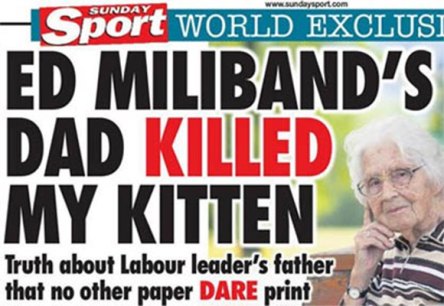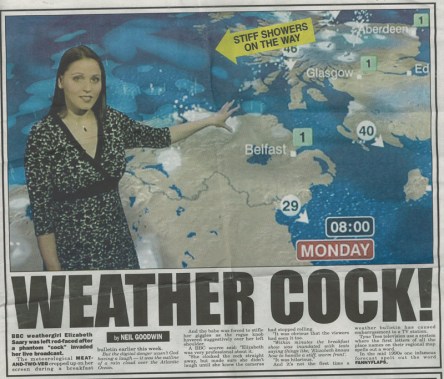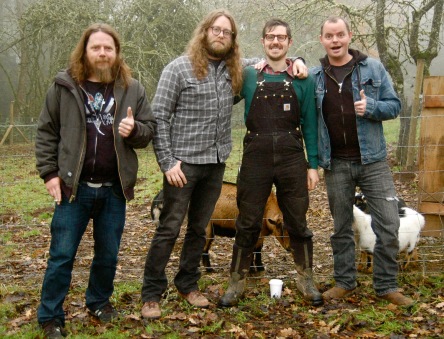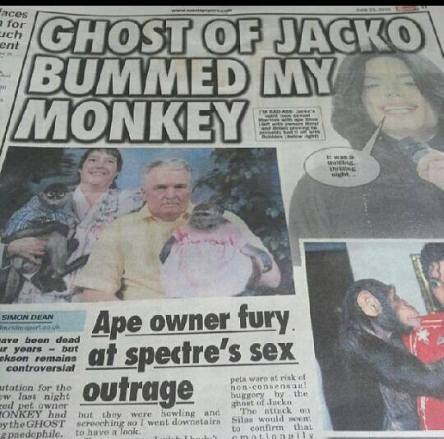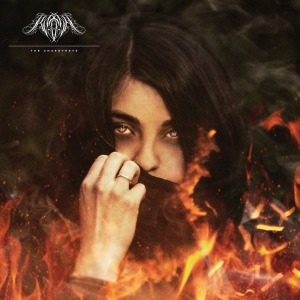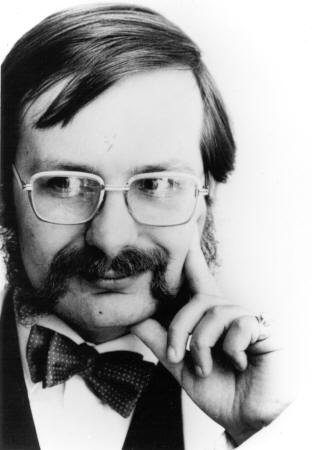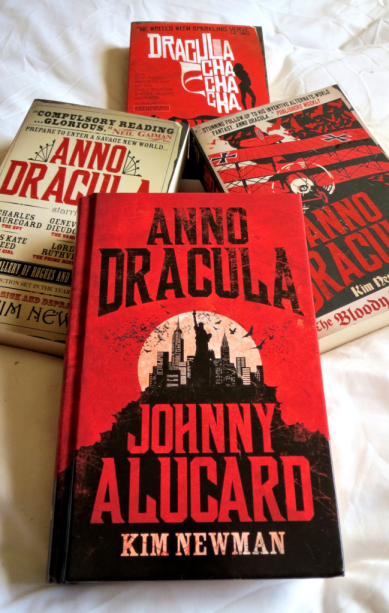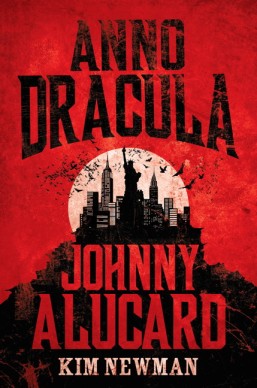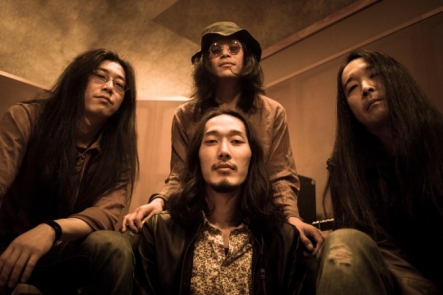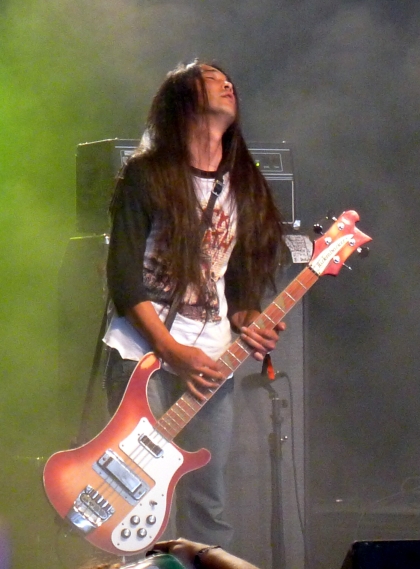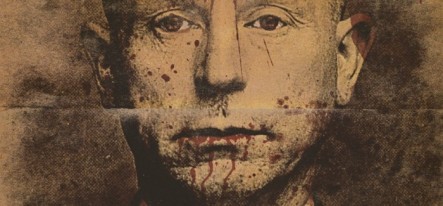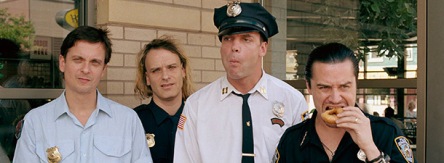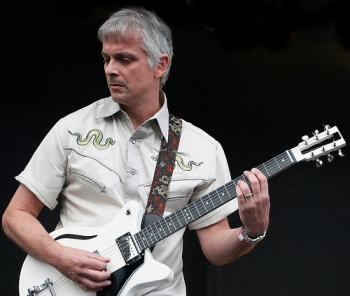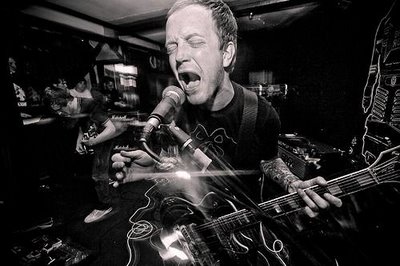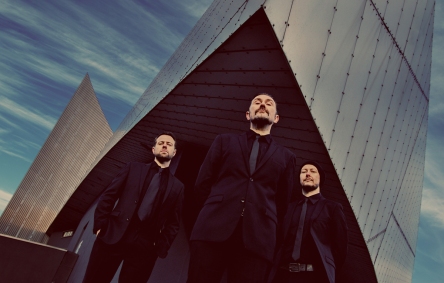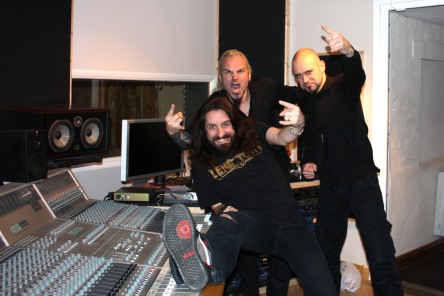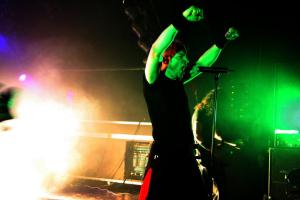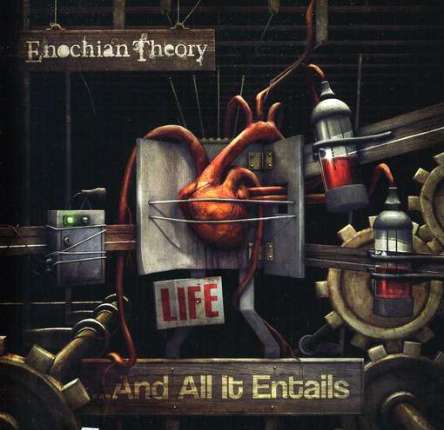
Given the number of musicians and bands I’ve known over the years, it’s slightly surprising how few of them have ever really made it out of the little leagues.
That may be confirmation bias at work, of course; we all like to think that the musicians we hang out with are much better than the dorks we see loading out at the practice rooms when we arrive. But as the years pass, you notice differences of attitude between the musicians you know, differences in outlook that affect not just their music, but the way they approach the whole being-a-band thing. Southsea – the closest thing Portsmouth has to a bohemian quarter, and where I spent nearly half my life – has always had a thriving local scene, but the number of bands who made it beyond the city limits is vanishingly small. Understandably, this is something that Southsea bands have discussed, sometime quite heatedly, for many years.
And while geography plays its part in that, so does something else. Where does success come from? The Southsea bands that achieved escape velocity were almost always the ones who grafted like coalminers; hell, I remember a couple of bands who got their name around the country by touring on the Megabus, borrowing backline and sleeping in train stations when they couldn’t cadge a place to crash overnight. But is it just hard work, or is there some sort of magic that can turn hard work into real results?
Screwed if I know. But when an email hit my inbox last week to tell me that Enochian Theory – a band whose frontman, Ben Hayes, I’ve known since long before they even formed – were tooling up to play a London show in support of prog legends Gong in the wake of a handful of big headliners of their own, I figured I had a chance to find out.
Of course, Ben’s answers apply only to Ben. (This is true of all people, but especially of Ben; you may know someone similar, though the statistical odds of them also being a lanky Cornish yeti are presumably pretty low.) But in these troubled times, both for the music industry and the world at large, one individual’s answer is a data point in an otherwise unpopulated field, if nothing else.
What I know for certain is that Enochian Theory have worked like dogs for years, somehow subsisting on what I assumed was a mix of faith, fury and sheer bloody-mindedness, and for many of those years it looked – from the outside – like an expensive exercise in futility.
But now it finally looks to be paying off, so I dropped Ben a line to see if he could explain how he got from there to here.
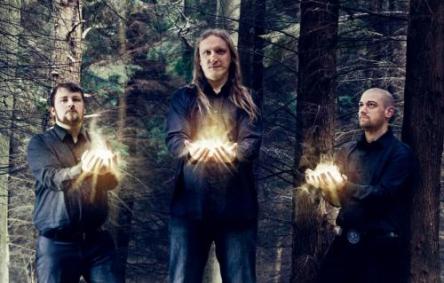
PGR: It’s probably getting on for three years since last we met, Mr Hayes, and it looks like you’ve been as busy as ever in the interim. Tell the nice people of the internet what you’ve been up to lately, why don’t you?
BH: We’ve been slowly but surely promoting our second full record, Life… And All it Entails, which came out through our evil paymasters, Mascot Records in March this year to quite a lot of good press across the board – despite, it would seem, some people’s best efforts to deny us this… We’ve been beavering away behind the scenes, as ever, with a view to building our profile with what we think is, obviously, our best record to date… not that we have an extensive back catalogue to compare it to!
We signed a publishing deal with the rather fabulous Northern Music Ltd, run by the industry magician known as Andy Farrow, who have many great acts on their management roster (Opeth, Katatonia, Devin Townsend, Paradise Lost and more). So, besides getting our second record out against a lot of odds, signing with Andy’s company has been the co-highlight of our year thus far, from both a business and opportunity point of view.
We’ve been hassling Andy to work with us for years, and he’s always been very honest with us in saying that we needed to build our profile more before he could do anything with us… and now, he’s opened his door a bit, taken us on board and subsequently delivered some great things already, like the Gong support (Monday 19th November, Shephard’s Bush Empire) and the Tesseract shows we did, and he’s generally fighting out corner for us. It’s great to have a real industry heavyweight supporting us and we’re very thankful for it thus far.
We’re working on some great touring plans for next year, which hinge on tricky negotiation and the all-powerful Euro, along with a plan to release a new EP in early 2013 to help reignite some interest in the band; this will perhaps draw some attention to the album and cover up the criminal job the original PR company did for us when Life… was released. I find it amusing that a paid PR company couldn’t achieve with their ‘budget’ and contacts half of what we, as a band – or, more accurately, Shaun (our bassist and PR guru) – achieved for ourselves.
Let’s just say that this is a very sore point with us still and we’re still battling with the label for things that we feel should have been done, but simply weren’t. But I’ll put my rant on hold for now; despite what people think of our success and how “easy” they think we’ve got it, I can assure you that it really is NOT that way. Anyone who works in this industry will tell you the same.
But hey, 2013 is already shaping up to be better than 2012… and that’s got to be good.

PGR: What are you most looking forward to about playing on the same bill as Gong?
BH: In all honesty, I’m looking forward to playing a venue that will not only be our biggest UK show to date, but one that we’ve seen favourite bands perform in many times; to be able to say I’ve played on this stage is another tick off the non-existent mental list I have of things I perhaps (or perhaps don’t) want to achieve before I choke on my own vomit, in my bunk on a tour bus, somewhere in Europe…
My adorable band mates, Shaun and Sam, are very excited about the show; it’s a testament to the hard work and dedication that we’ve put in since we formed in 2004… or rather, since we really knuckled down at the end of 2008 after becoming a three-piece.
We’re hoping that they’ll be open minded people there who will be able to appreciate our music. And if not, well, hell – we’ll have had some fun and played a massive stage to bunch of disinterested people…result!
We’ve managed to get some respected people in the press to come down, so that’ll be good to hear what they think of us, post-show.
PGR: You’ve played alongside a pretty stellar list of prog legends lately, as well as doing some big headline shows of your own; I’m not so cruel as to ask you to pick favourites, but what would you say was the show that’ll stick in your mind for the longest, and why?
BH: That’s a tough one, because I’m very critical of our performances live, especially my own. However, I guess that’s the only way to be, the only way to improve: Analyse, Address, Improve.
It’s lovely that people can come up to you and say “Wow, that was amazing dude!” or “That was so beautiful, you really won me over!” And don’t get me wrong, I really appreciate that a lot, because at times it is what keeps me going on the road, and without people coming to our shows, we’d be just another practice-room band. But, if I know I’ve had a stinker of a show, I tend to have to smile through grinding teeth, because I’m seething with myself for not being able to play my own songs live.
But the most enjoyable show I can recall to date was the ill-attended London show we did in September, because it was our first headline show, playing both albums in their entirety and we nailed it…we really did. I was grinning like a fool during and after the set, because after all the worry and stress we’d put on ourselves trying to nail all those silly technical parts in the songs during rehearsals, it just flowed naturally, and that showed in our performance. Playing for two hours nearly killed us, but hot damn – we did a job, and the coverage testified to that with some great live reviews, particularly the Classic Rock: Prog review.
That was cemented a week or so later during our first ever headline show in Germany, where we played even better and had a crowd to go with it! I love Germany; they really seem to have taken us on board, and we’re doing ok out in mainland Europe.
I tend to look at each show as a testament to our survival instincts. With each performance, we’re getting better and can be thankful that we’ve not been swallowed by the big, bad industry… and that, my greasy chums, is just fine with me.
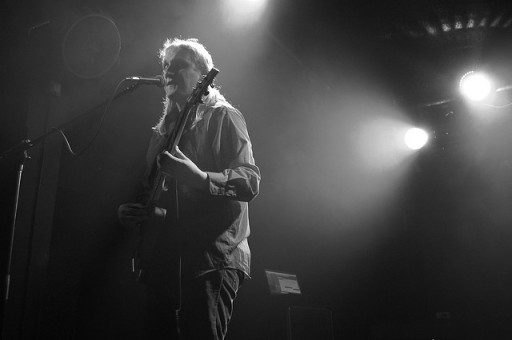
PGR: What about the flipside – if you could erase one gig from the timeline of consensus reality, which one, and why?
BH: I don’t really tend to remember bad gigs, or rather, I get over things pretty quickly now… although I may scowl at my bandmates or punch myself in the face for a bad show – usually actually during the show – but I tend to get over it quickly and just get on with it these days. I’ve learnt to NOT show my displeasure onstage, because nine and a half times out of ten the crowd know no different and it’s only me that noticed that I bent a note half an octave too high or I was little flat in my vocals for a fraction of a second.…
But if I have to say one that really sticks out for being a frustrating experience… it was the last show on the five-date ‘Classic Rock: Prog 2.0’ Tour we did in early 2011 with our buds in Touchstone and Jurojin. We didn’t get a sound check, and then one of the power supplies blew onstage during our set, rendering my guitar and microphone useless for a great part of the set, and the rather useless stage crew at the venue simply stood about, while I glared at them like a harassed madman… Thankfully, we now have all our own equipment – much to the annoyance of some venues, but sod them, I’m not going through that ever again. People pay good money for a show, and we certainly intend to give them what they paid for.
PGR: It’s been a long road for you, hasn’t it? When first we met, you’d have still been fronting In This Defiance, roaring at people in the Horseshoe in Southsea while Johnny Thrash jumped back and forth over his pedal board… but you and music go even further back, I believe. Can you recall when you graduated from just loving music to thinking “this is something I want to do”? What was the trigger?
BH: In This Defiance… now that’s some memories! ’The Blastbeat–Driven Sarcasm Machine’, as I liked to call it… [laughs] I’m still in contact with Alex D’est-Hoare (the human drum machine from ITD), which is nice. Sadly, me and Johnny were never really that close, but I hear he’s doing good things with his own band, so that’s good for him.
I’ve been playing music since I was 8, when I first had drum lesson in school, merely so I could skip boring lessons. But for some reason, it became a love, and being in bands, learning from other people and learning other instruments, keeps me entertained. There is always something more to learn.
But in regards to Enochian Theory, I’d say it was in 2008 after Scott left the band that we decided that it was going to be all or nothing, because we’d reached a point where we’d built the foundations of something good with the band and our own label, Anomalousz Music, and there was no way we were going to give it up.
I still remember sitting down with Shaun and Sam, and us all having that grim British, steely attitude to it all. We’d lost our guitarist, our practice room and a lot of money we’d invested, and we literally had to start again from scratch. We knew that by working smartly and writing a full album, investing in technology, we could achieve a lot more… so that was the day that shook our collective worlds, and here we are, still standing. A bit lop-sided, maybe, but still standing.
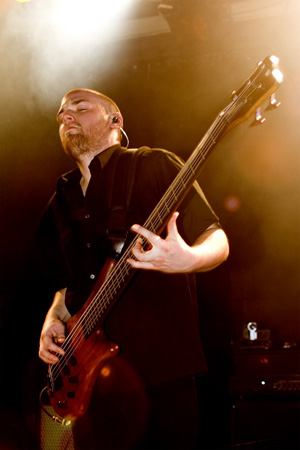
PGR: What kept you going? I remember you telling me – rather resignedly, it seemed at the time – that the UK prog scene was just to small for a band like ET to make its mark; what changed? What did you do that finally got your fingers over the parapet?
BH: Sheer stupidity, some might say… but more like a shameless, unapologetic attitude of not caring what anyone else thought kept me going. My bandmates pulling me up by my depressed head kept me going. People taking the time to buy our records and get excited about us online or at shows kept me going. And my family continually being supportive of me, despite that fact that they and I both know that I could get a “proper job” that would be a much better way of living… but I question whether it really would be.
I’ve driven myself near to the point of madness and actual hospitalisation by being in a job that, despite making me financially secure, leaves me feeling utterly empty, unfulfilled and unrewarded – and that is more dangerous to my health and mental well-being than driving thousands of miles in a van to play shows across Europe. Maybe not statistically, in regards to accidents and such… but you get my point, I’m sure.
Personal stuff aside, I guess prog became a marketable product again. Don’t ask me why or how, but it did… or then again, maybe it never went away? Perhaps it’s those bands that have been working their asses off for 10-20 years finally getting their dues, or perhaps it’s the fact that they’ve worked smartly in the face of an industry that was slow to catch up with the internet revolution? Perhaps it’s the fact that popular music is so dreadfully devoid of soul, that people are looking for something a little more honest.
Suddenly, you have dedicated magazines for the genre across the world once again, with the likes of Classic Rock:Prog (which is a massive magazine, when I think about it, and one that is very supportive of us); and it is cool again to play twenty minute songs with eighteen minutes of that being a guitar solo… or, in our case, four-minute pop songs masquerading as introspective, depressing rock… [laughs]
But in seriousness, I just think that things move in cycles, which means we’ll be due another nu-metal explosion in about a decade. At which point, I’ll be sure to take a pistol to my grey matter.
There’s always been a lot of bands in the underground doing a lot of progressive things in their own right, regardless of whatever sub-genre they’re shoe-horning themselves into, or of whatever timeframe/era we’re in. When I was bang into my metal, bands like Coalesce, Drowningman, Cryptopsy, Botch and Dillinger Escape Plan always attracted me to the heavier side of things, because they broke free from the confines and trappings of the genre, by utilising (read as: “chucking in”) elements of fusion, jazz, electronica, blues and everything else to make their music more interesting. Even more so, mainstream bands that I love like Alice In Chains, Soundgarden and such, utilised more ‘progressive’ elements (even if people didn’t recognise it), like odd time signatures, polyrhythms and such, to make their music better, and good on them for it.
The UK scene has produced some amazing bands, true pioneers in many senses of the word… and now, if what I read is correct, we’ve got our Anathemas and Porcupine Trees to show everyone how it’s done, alongside our King Crimsons and Genesises (Geneses? Genesii? – Ed).

PGR: How do you think geography influenced the band’s development? What effect did being stuck in one-horse Southsea have on that?
BH: I think remembering what it was like to live in Cornwall was enough to drive me forward. Southsea was paradise compared to my old town of Camborne, trust me on that.
In regards to Cornwall, I still see my old friends doing the same things in the same places, having no drive to escape, which is fair play to them, but it was never for me. You could say that “I want more life, fucker…” [laughs]
But I think that for all its negativity to anything that wasn’t metalcore, chindie or ska, Portsmouth still had a small group of people who weren’t sheep, and who would support us in what we did, who had a kind word to say, or would randomly play one of our songs at their local club nights, which always made me smile.
I think the attitude of some other people led me to wanting to prove to them that I was worth more than what they thought, which in itself is rather sad, because I let people get to me. But I don’t care any more; I’ve achieved more than I ever hoped and, above all, I’ve achieved more than they ever have. Hard work and a steadfast “don’t care what you think” attitude helps. It’s the only way to be true to what you’re doing. It’s a shame other people and bands didn’t have the same convictions, but hey, that’s their problem, and they can moan about it into their pints in their dingy local, all evening.
PGR: If I suggested that Southsea – and, by extension, other music scenes in insular sorts of places – had a weird attitude to ambition, how would you respond? What influence on the band’s development did Southsea have, whether musically or otherwise? Do you still think of ET as “a Pompey band”? Did you ever?
BH: I guess it does affect you, mentally and in other aspects. I believe sometimes that there is a small town mentality in some parts of the city, with Southsea being its own town in many ways – very clique-based. Sure, we’re all products of our environment, but to make a change, you’ve got to be the change, or some other new–age hippy crap like that. I’d hazard that we, as a band, knew what we wanted to do – and that was to NOT play the same local venues, week in, week out, to the same disinterested people. Really try to get out of the city to play shows, perhaps sell some CDs. That’s ALWAYS been our mindset really, and it hasn’t changed.
Joking aside, life affects you in many ways, and that of course becomes a contributory factor in how you feel, which in turn, becomes how you create music and what you want to say. I’ve had some great times in Portsmouth, and I’ve had some truly hellish times too… mostly because of my own idiotic choices, but that’s how it is. That is how life is. Meeting great people and being in a good mindset has been great, but drink, drugs and assholes have not been so great. I think that’s why I recently took the decision to leave Portsmouth after some thirteen years, if only to try and meet the same sort of assholes and disasters in another city!
I do still class us as a ‘Pompey’ band, though. It’s where we were formed and moulded, where we worked our socks off, using it as our base, and where we still practice and run our business. For all its faults, Portsmouth/Southsea is just another place that we chose to live in, and we have a strange sense of support for it. It’s still our home.

PGR: Your lyrics are pretty personal stuff, albeit obliquely so, and there’s a definite sense of soul-baring and emotional exploration in the music; is this a kind of exorcism attempt, a catharsis? Why didn’t you just go with the usual metal clichés; surely that would have got you further sooner?
BH: I feel that art has to be truthful, and above all, it’s a chance to get some things out that perhaps you don’t feel you can speak about normally? That may sound strange to some people, but we all spend a lot of times hiding behind mental barriers and walls we’ve put up to protect ourselves from other people, even though, deep down, we all know that we’re all as fucked up as each other, and should just accept that.
I’ve come to the conclusion that I am messed up and I embrace that wholly now but I try to deal with it and not be a butthole all the time, and this is working out just fine for me. I tend not to hide things anymore and this can scare people sometimes, but I’d rather be honest and hit things head on, than keep hiding. That’s not me; I say what I want to say and act how I want to act – and if that pisses someone off, then tell me and I’ll see what I think of it. This usually ends with a middle finger on my right hand being displayed. [laughs]
A lot of my lyrics are a form of catharsis, and a lot of them are explorations of things I want to say or get out, but perhaps they aren’t directly personal, more a lyrical projection of a feeling, a thought or an emotion. It’s how I’ve always written lyrics. As for going with the clichés, again, that’s not really me. I do write about war and such, but in my own way. It’s hard not to be influenced by what you see around you in the world. It can be a cold and ugly place, but it’s all about trying to remain positive in the face of almost overwhelming media saturation of how bad things are. I feel that it’s all open to interpretation…some things are not always so black and white.
PGR: There’s a lot of loneliness in the tunes, too, a sense of inner space, a hiding place; how would you react if I accused you of being a singer-songwriter who decided that a guitar and a mic wasn’t enough to contain you?
BH: An interesting observation, and perhaps one that I would agree with, to an extent. Although there’s a lot more positivity coursing through our work than people perhaps realise at first. Perhaps it’s the musicology of the material, with most of it being minor-key related, if you want to break it down to a non-sensitive level. That can affect a person’s mindset when interpreting things, and it’s a technique I’ve deliberately worked with.
Some of the lyrics are about the acceptance of something… it may seem like it’s very dour and dark on the outside, but dig a little deeper into the plays on words, sarcasm and commentary, and perhaps they’ll reveal the true meaning to you.
As an example of what I meant, Singularities is intrinsically about a friend who took their own life. It’s a song I promised myself I’d write for them, and for the clusterfuck of emotion that surrounded that phonecall I got one evening. It’s to remind me that life is worth living, as much a celebration of life and hope… and, in parts, perhaps me having a go at them for being such a selfish bastard. But I know the ins and outs of their issues and illnesses, and I can never truly comment on how they were feeling or what drives someone to do that. So it’s a complex lyric in that respect, but a song that I dearly love playing for its positivity, its reminders of how life can be.
As for the mic and guitar thing, it’s an accusation that I cannot deny. But is it as simple as a case of something that couldn’t contain me? I always wanted more from life and always wanted more from music, once I got my head around what I wanted to do, and I’m just thankful that my band mates tolerate me enough to work alongside me to build our empire.
I think anyone who wants to be better will strive to learn more about their chosen path and try to develop accordingly, acquiring new skills and abilities, and in my case, getting a degree in music and sound technology helped, because it actually made me learn things I would not have done otherwise.
I’ve always sought to learn more, to prove to myself, above all else, that I could perhaps do something that worked for me. And if by some miracle, this musical vehicle of lyrical self-deprecation reached other people who could share an affinity or find something in it for themselves, even if I was always being selfish about it secretly… then that is a result, no? Finding your own path in life is probably the hardest thing to do.
Loneliness is something a lot of people feel in this modern age of technology and so-called advancement. We’re in touch more than ever, but we’ve never been further apart as a race. The whole idea of being so alone yet being surrounded by so many people, is one that always confused and intrigued me in equal measure. It’s a truly baffling idea, and one that has led me on many drink’n’drug fuelled negative journeys, but it’s also one that I use to fuel my anger and frustration nowadays, and I don’t let it control me and how I project myself.
I’ve answered questions like this before and I have to repeat myself again here… but I feel that dealing with matters and subjects that are hard to talk about is a form of true positivity. Being able to form those feelings and thoughts, then put them into words and song, is a testament to an inner strength, though whether anyone else finds it that way is no concern of mine. It’s a sort of “I’ll deal with my crap how I want, you deal with yours” attitude, I guess. I deal with my demons in a more positive way than a lot of people, and for this, I’m thankful. I don’t fight (unless I’m fought), I don’t abuse people (unless provoked) and I don’t cause problems for the law. Much… [laughs]
I’ve not the got the greatest track record for being the most ‘sane’ person people could meet, but as time goes by, I have perhaps matured a lot, and that’s another positive aspect to take from it all. As a certain Canadian once said “I know I have my issues, and we know you have yours!”; and that is a truth right there, my hairy chums. What right does anyone have to judge me, when I know they are exactly the same chemically inept, dumb-ass primate that I am?
In summation, I do this for myself; first and foremost. We do this for ourselves… otherwise, what is the point? I’m not going to make millions, like some pop puppet with shiny teeth and coiffed hair… so, I’ve got to make it my own, get something from it and be truthful to myself. That honesty apparently conveys an openness to people that they respect.
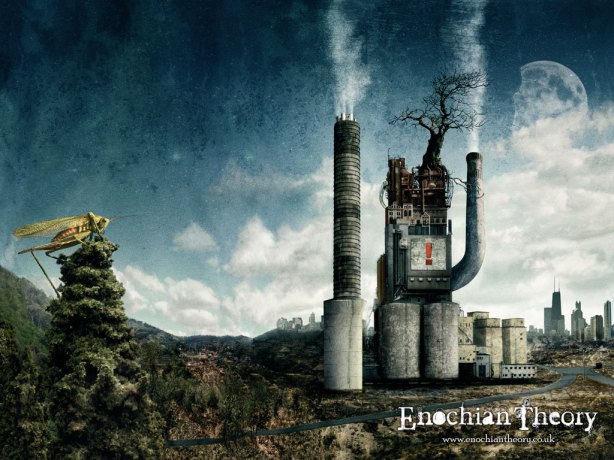
PGR: ET were rather plagued with personnel problems at a few points, but have been stable for some time now; what was the cause of the instability, and how did you fix it? Do you rule with an iron fist? How does the division of contributions to the song writing process work out?
BH: I wouldn’t say plagued; we’ve only shed one band member, and that was through a mutual agreement of “either you go of your own free will, or we’ll shove you”. The whole Scott thing seems so long ago now that I don’t really give it much thought any more. It was all to do with Sam (drums) and Scott not getting on, and then this started to radiate onto myself and Shaun. It became intolerable; we hadn’t written a new song for 18 months and it was just a very trying time, where music became a real chore that I didn’t want to face.
So, what do you do when you’re faced with a major issue that affects friendships, business and all the work you’ve done to date? You either hide from it, or you tackle it head-on and get the best result you can from a very shitty situation. We’ve come a LONG way since our first EP with Scott, and are so much better for it.
Don’t get me wrong, I still like Scott and he’ll always be part of ET’s history, there’s no denying that. We all started this band together, and for four years of touring and working together, we were a family, but something had to give, and thankfully Scott was man enough to realise what needed to be done, even if it hurt him a lot.
After Scott left, I remember sitting down in my room and simply holding my head in my hands, wondering what the hell I was doing with my life. My personal life was heading down the pan with a relationship that was doomed. But as humans, we try to grasp onto something, even if we know it is going to fail. My band was in utter turmoil and it was all just such a depressing time.
So, what’s a fella to do? You write music. You write true to yourself and you make it the best you can with what you have, and that’s what I did. I wrote The Fire Around The Lotus, and that was the first song that I took into the practice room to show the guys. I could sense that it was something special for us at that moment, because after not writing anything for almost two years at that point, it was a relief, and perhaps where my determined attitude to not ever be reliant on another person for musical output came from. If I want to write something and use it, I will, as long as it’s good enough. Songwriting has become a focus that keeps me going.
With Evolution, I wrote most of it – songs, structures and everything else – but we’d always work on it as a band in the practice-room to ensure it all worked out right in the end, but there were usually very few changes needed. Things just worked, and if they work, there’s no need to change them. I introduced the use of technology more, so we could expand on the sound we’d started. I still wanted to play keyboards and sing, but now I needed to play guitar as well… so, I tackled that with technology and it’s worked out lovely for us.
With the Life… record, that was almost all me in my home studio, except one song that was put together in its basic form between Sam and myself at our practice space with some riffs I chucked together. It was just how it was; it wasn’t something I did on purpose, but it was something that needed to happen. I’d spent a lot of time learning a lot of things, musically and technically, and it just came out that way.
Shaun and Sam do their own thing for the most part, but I’m always watching and listening, ready to point out that 7/8 into the 11/9 section needs to be played that way for a reason…BECAUSE IT SOUNDS GOOD! [laughs]
It’s not an ego thing, it’s merely that I have the guitars, the keyboards, the synths, the software and the (apparent) know-how in using it all. I remember asking Shaun to contribute riffs to the records many times, but he always said that he worked better with having a strong template, so that’s that really. However, I’ve finally convinced Shaun to join me in tech land and he’s bought a lot of equipment so he can work on things himself at home, which is great. It’ll be good to see what he creates, and it can only benefit us as a band. Providing that I like it. [laughs]
In summation, we are a band and we work on things until they’re right – no matter who starts the idea or who does most the work.
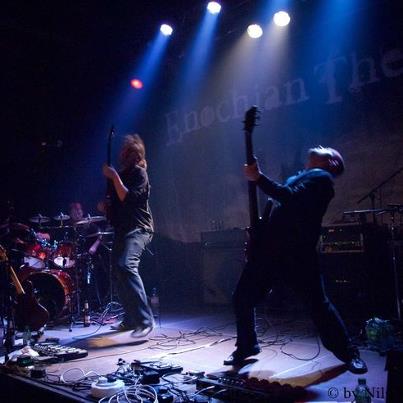
PGR: You’ve spent years driving the ET train, and I know for a fact that, for a lot of those years, a lot of people thought you were at best Quixotic, and at worst just plain nuts. How aware of that were you, and how did it affect the work?
BH: I always wanted to do what I wanted to do, that’s never changed and I hope it doesn’t. My feelings on what people think of me are dying, day by day. I reached a point where I thought to myself “hey, Ben, are you really doing this all for yourself, or are you trying to seek some sort of validation from certain people?”
It’s interesting that people found me plain nuts, though. I guess I never truly understood why someone wouldn’t give something their complete all, you know? I looked at this as a business from an early stage: businesses take time to grow, you have to have a good product, and the means to get that product out there. I guess it could seem crazy to many people, but those people simply do not have the passion I have for this.
Some people confuse passion with insanity or ‘difficultness’. I don’t. It’s very clear to me.
PGR: What was the biggest sacrifice you had to make? What do you regret most?
BH: Sometimes I get very angry, so angry that I worry myself. I wonder sometimes whether it’s all been worth the hassles, the debts, the sleepless nights and sheer inner turmoil that I’ve put myself through, you know? It’s hard to not commit yourself to something like being in a band properly; there’s no leeway. There is no correct path to follow, and when things don’t go the way you expected, it can be soul-destroying.
I’m not going to describe a particular thing that I’ve let go, but I will say that I’ve passed up great job opportunities, chances to travel, chances to do things that everyone seems to have done. But above all, it’s cost me relationships, not just with the opposite sex, but with my family. Sometimes it’s been hard to see the wood for the trees and I’ve been so steely in my resolution (stupidity?) that I’ve not dealt with the real world, because I’ve been dealing with my other real world, if you follow me.
I think I tend to relive those choices – and, don’t get me wrong, they were my choices – through the songs and the lyrics I write. It’s back to the catharsis thing; when I sing it, and it doesn’t hurt me any more, I know that ghost has moved on. The songs take on a new meaning for me, and allow me to be respectful of where I’ve come from – so that, perhaps, I won’t go to that place again.
PGR: And now you’re here… so, what’s next? Have things gone as planned, and where does the plan take you next? How will you know when you’ve done what you set out to do? Where does your ambition end, if ever?
BH: No, things don’t always go how you plan; people ensure that, money and time ensure that. Things that you cannot foresee happening ensures that.
I’ve always said that I’ll keep doing this until it stops being fun… and at times it’s not been fun, but that spark for wanting more has never completely died out, even in those all-time lows. So, I’ll keep writing music, we’ll keep pushing forward and hopefully Enochian Theory will keep going until… well, until we’re done with it.
With every step back we take, we eventually take two forward. When I look at what we’ve achieved and where we’ve come from… it’s amazing. I never thought, when I was living in my scummy bedsit in the middle of Camborne in Cornwall as a teenager, drinking cheap cider, drinking cough medicine for kicks and doing bad drugs, that I’d have cleaned up, toured Europe, played festivals in countries I’d never heard of at that time, released three solid recordings to nothing but good reception in magazines that I used to buy, and have the band I work in used as a comparison touchstone for newer bands… that, my friend, is something that I have to be proud of.
Whatever plan I made has slowly come to fruition, even if I truly never had a plan that I was aware of. Shaun and Sam have helped there, shaping the crazy into something that works. Sure, things could be better – they always could be – but you’ve got to be happy with what you’ve got to be happy with. For now, I don’t know when I will realise when I’ve done what I’ve set out to do, because I never set out to do anything, really. It all just became a logical progression, year in, year out, just to continue doing what we wanted to do. Complete Point 1, which will allow you to achieve Point 2, and this in turn opens up paths to Points 3 and 4, you know? That really is how I look at it, how we look at it.
We’re not stupid enough to pretend we’re going to make massive amounts of money from this – but you know what? That’s just fine with us. It’s that struggle that keeps us going and keeps the fires burning for wanting to achieve more. I take each day as it comes because I know life is a fragile thing, and it could be taken from me in an instant, but that doesn’t mean I don’t look forward to things and plan them accordingly.
But overall, who knows? It’ll be done when it’s done. And right now, that point is so far in the distance it’s inconceivable to even imagine letting go of all this. I ask myself sometimes, when I’m feeling down and despondent, how many people I know have truly stuck to their guns and really given something their all. I don’t know many, but those that I do know I tend to be close to, because we’re from the same breed of “don’t care, get on with it” life forms. How many people in all the bands I’ve ever actually known have achieved even close to what I have? I can count ’em on one hand, probably. It’s each to their own, but I still get people I know saying “oh, I wished I’d tried harder…” to which I can only say “yup, you should have – now get me a beer and I’ll tell you about the awesome stuff I’ve been up to!” [laughs]
You pay the cost and take the massive loss to stay at the top. And hell, we’re not even at the top – yet – and that is something I want to aim for, even if I’m not truly aware of it. Does that even make sense? I doubt it.
PGR: If you could go back in time to the evening of ET’s first show – not your big posh shows you do now, mind; I mean that first tricky set in some dingy Southsea venue or another – and give that earlier Ben one piece of advice, what would it be?
BH: Our first ever show was at the King Alfred’s in Southampton, and we rocked! [laughs] We were very tight, even then, because we’d practiced the hell out of our songs, and always played like we were playing to a 100 people in our practice space. So it was almost a natural transition; I always remember that. Think we’ve still got the video recording somewhere…
But if I could ever give any advice to myself then, it would be… nothing. What could I possibly say that’s going to make a headstrong person like myself change? Life is truly about learning, and you can only learn by making those mistakes. No one can live them for you. All the anguish, the hurt and the pain you cause yourself or that gets caused by others, along with all the joy, the happiness and contentment that comes along too.
That is life, and all it entails.
PGR: And what advice would you give to some young person with a band and some big ideas in a town where no one cares much for either?
BH: Do what you feel is right and do it for yourself; sod everyone else. Work smart and work hard, and above all, try to enjoy those few moments where you do feel on top of the world – because even if no one else sees it that way, it’s about how you feel at that moment. Embrace life, and simply get the fuck on with it.
Enochian Theory play the Shepherd’s Bush Empire on 19th November in support of the mighty Gong. Their latest album, Life… and All it Entails, is available now.
